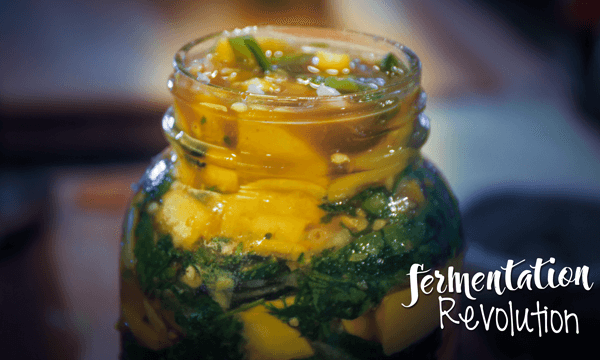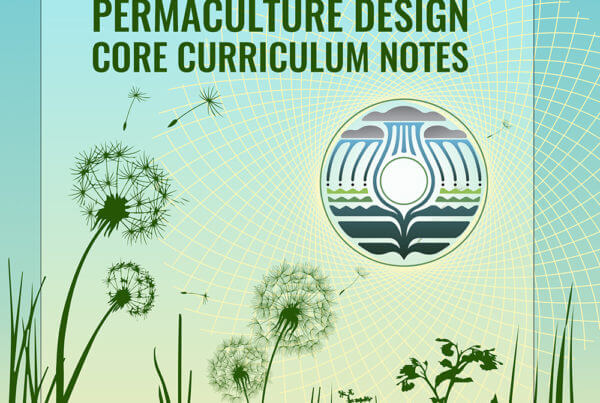The start of January marked the beginning of something very exciting in my neck of the woods: a brand new full year diploma in Permaculture Design and Resilient Ecosystems. This program at Pacific Rim College in Victoria BC Canada is a perfect and greatly needed addition to the ecosystem of permaculture offerings at schools in the Pacific Northwest.
While it has all the elements of a regular permaculture design course (PDC) – and students do receive a design certificate – what I especially love about this program is its unique focus on community project management and business skills. I think it’s fair to say that most students take a PDC in hopes of building skills and knowledge to undertake their own projects and initiatives – whether that’s designing their own property, creating a community permaculture garden, working in the field of sustainability, or maybe even starting their own business. What’s common to all these things is the need for skills in project management, leadership and interpersonal dynamics, and communications.
And while a lot of short PDCs focus on more technical subjects like site analysis, mapping, soils and the like, many folks would agree that this natural systems part is the “easy stuff” to learn.
The hardest stuff – and the most common reason that permaculture projects or intentional communities break down – is the “people” stuff. How do you set up good long term maintenance systems for a shared site? How do you navigate the messy complexities of community engagement and collaboration? How do you manage and communicate about your offerings effectively so that you can actually make a profitable living with a permaculture business?
The word “entrepreneurship” comes from the old French verb entreprendre, meaning “to do something” or “to undertake.” So while I know many people who are attracted to permaculture because it makes a point of departing from the expansionist capitalist thinking that has wreaked havoc on our planet, the reality is that whenever we undertake a project, we are being entrepreneurs!
In my own history as an anti-capitalist, I used to be judgmental toward people who were taking courses in marketing. Now, after working with not-for-profit groups for a decade, I’ve realized how incredibly important effective marketing is for every sector – including progressive change-focused initiatives – and I’m constantly trying to learn more! These days, I think less in terms of marketing and more in terms of engagement and building beneficial relationships – which is what we’re always trying to do in permaculture, right?
That’s why I’m so excited that in this Pacific Rim program, students will be learning from a diverse and talented group of teachers who understand the full spectrum of skills really needed to undertake successful projects and businesses dedicated to the change we need in society.
Tayler Krawczyk and Solara Goldwynn of Hatchet and Seed, Jude Hobbs of Cascadia Permaculture, Mark Lakeman of Portland’s City Repair and Communitecture, and Heather Stretch of Saanich Organics are just a few of the many folks who have built successful businesses in the field. And there are a number of teachers contributing vast experience in leadership, community facilitation, social justice and and not-for-profit management including Maurita Prato, Ashley Gillies, Steph Enevoldsen and Ryan Hilperts.
The program has been developed by Hannah Roessler, a professional agrologist and dynamo teacher of Ethnobotany, Ethnoecology and Permaculture Design at the University of Victoria and Pacific Rim College. Full disclosure: Hannah also happens to be a good friend of mine and I’ve had the pleasure of working as a teaching assistant alongside her in the permaculture design course which we helped establish at the nearby University of Victoria. And I’m thrilled to be part of her teaching team in this new Pacific Rim College course too!
I’ll be teaching a day in November focused on project communication and digital engagement as part of the PD311 – Business Development and Project Management course.
What’s also great about this program is that it’s a really ideal size. The core 72-hour PDC curriculum is really just a “taster” that doesn’t allow time for diving deep or adding more important content. On the other hand, many of the permaculture courses listed on this site require people to be enrolled as university students (often in a traditional 4-year bachelor program) in order to take the course. The Pacific Rim College program takes students through a full year of learning permaculture in each of the seasons, including a 170-hour summer practicum for hands-on learning at sites in the region.
There are also several short weekend workshops coming up in the program that are open to the general public. So if you don’t have a whole year, there may still be something here for you!
You can learn more about the program and apply for next year’s intake here: https://www.pacificrimcollege.com/faculties-programs/program/permaculture-design-and-resilient-ecosystems
Find other colleges and universities offering permaculture education at www.universitypermaculture.com.
This blog post was created by Kat Zimmer, a visitor to the site. For more information contact them directly at kz.katzimmer@gmail.com, or at https://universitypermaculture.com.
This blog post was created by a visitor, and not by Permaculture BC. As such Permaculture BC has NO FURTHER INFORMATION then what you see here. Do not call, email or toilet paper us with emails or phone calls, as we DO NOT KNOW THE ANSWER TO YOUR QUESTION. With quiet resolve, patience and determination we thank you.





